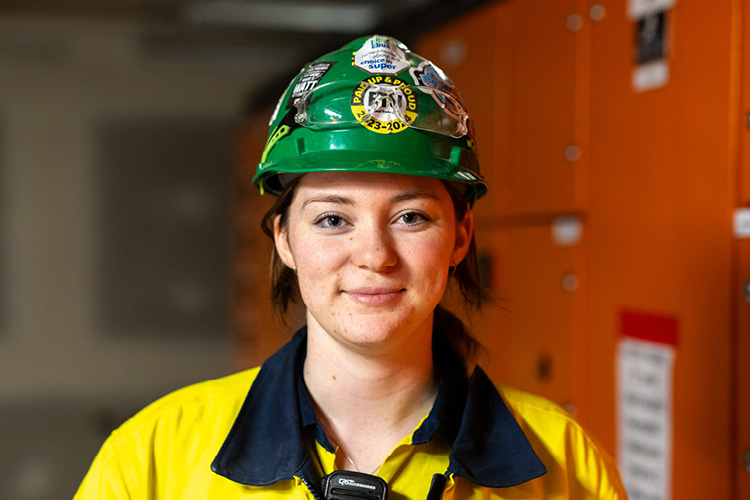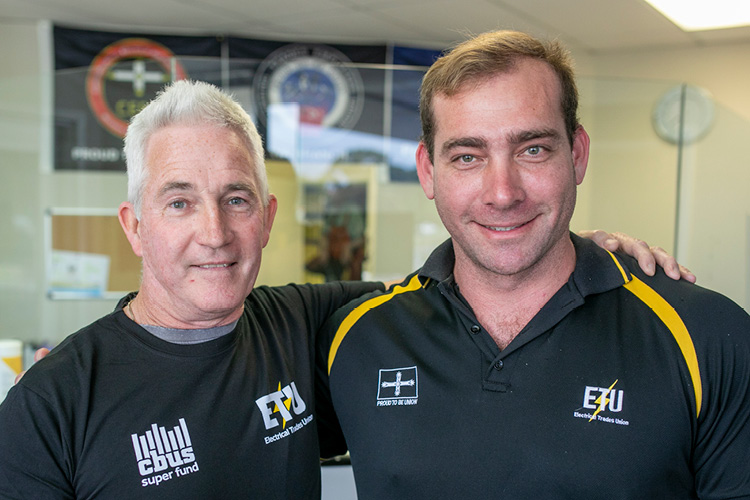
Member news
Get the latest news alongside tips on building and protecting your super.

Media releases
Keep up-to-date with the latest corporate information, news and announcements.

Investment news
See the latest Investment news and updates showcasing ways we invest your super.
Media releases
For media enquiries, please contact:
Email: media@cbussuper.com.au
Phone: +61 3 9100 4930
12 February 2026
National Apprenticeship Week: a ‘super’ start for new apprentices
2 February 2026
CBUS Super launches “Build Your Something”
19 December 2025
Cbus welcomes release of draft legislation to boost young tradies’ super
10 December 2025
Cbus backs government crackdown on dodgy super spruikers
10 December 2025
Cbus Super welcomes Chief Financial Officer
1 December 2025
Cbus increasing clarity and certainty on death benefit processes
25 November 2025
Cbus Super media statement on the Federal Court decision on delayed insurance claims
20 November 2025
Campaign to unlock thousands for retiring building and construction workers
5 November 2025
New Payday super laws are a big win for Cbus Super members
20 October 2025
Award win for Cbus Super’s Head of Responsible Investment
20 October 2025
Kristian Fok opinion piece published in The Australian - Lead generator cowboys are the wild west of superannuation and financial advice
12 October 2025
More than 50,000 Cbus members to benefit from Government’s LISTO increase
9 October 2025
Payday super laws will help Cbus Super members get what they’ve earned
7 October 2025
Speech to AWU Victoria Delegates conference
1 October 2025
Joint media statement
16 September 2025
Cbus Super to simplify beneficiary process in death benefits overhaul
12 August 2025
Cbus Super’s new renewable investment aims to deliver sustainable returns for members and help power Australia’s energy transition
3 July 2025
Cbus Super delivers a strong 10.29%* return
1 July 2025
Superannuation boost to turbocharge retirement dreams
30 April 2025
Cbus Super announces Chief Investment Officer transition
25 February 2025
$100 billion Cbus Super appoints Deputy Chief Investment Officer
20 February 2025
Boost super income threshold for apprentices and women in construction
11 February 2025
Cbus Super agrees with APRA to revamp risk management oversight
6 February 2025
Cbus Super appoints Head of ASX Core Strategy, Australian Equities and confirms continued benefits of Internalisation Strategy
28 January 2025
Cbus hits $100 billion in member assets after double digit returns
3 December 2024
Statement regarding Deloitte’s independent review report
20 November 2024
Cbus confirms directors fit and proper
12 November 2024
Statement regarding ASIC proceedings against Cbus Super on insurance claim delays
1 November 2024
Cbus Super’s Linda Cunningham awarded Industry Thought Leader of the Year
31 October 2024
Cbus Super welcomes Chief Strategy Officer
28 October 2024
Cbus launches household advice offering Advice Essentials Plus
23 October 2024
Cbus Super statement regarding IMF report
26 September 2024
Cbus Super lowers weekly administration fee
20 September 2024
Cbus Super welcomes new laws to pay super on the Commonwealth Paid Parental Leave scheme
18 September 2024
Cbus Super Welcomes Progress on Pay Day Super
13 September 2024
Cbus Director nominations
28 August 2024
$200 million recovered in unpaid super in FY24
14 August 2024
Media statement on APRA
4 July 2024
Cbus Super FY24 returns announced
1 July 2024
Cbus Super celebrates 40 years of strong long-term returns for members
18 June 2024
Cbus Super welcomes Chief Risk Officer
23 May 2024
Responsible investment and specialist fund strengths recognised in award wins
7 March 2024
Cbus Super welcomes super on Parental Leave Pay scheme commitment
26 February 2024
Super collaboration set to inject funds into affordable housing, delivering returns for members
17 January 2024
Cbus Super welcomes return of 9.49% for 2023 calendar year
Investment news
February 2026
August 2025
July 2025
June 2025
May 2025
April 2025
February 2025
January 2025
December 2024
November 2024
August 2024
July 2024
June 2024
Investment updates
Employer news
Employer newsletter
Submissions
February 2025
May 2024
April 2024
- Cbus submission – Amendments to the transfer balance credit provisions for successor fund transfers
- Cbus submission – Net Zero Authority Bill 2024
- Cbus submission – Annual Superannuation Performance Test-design options
February 2024
June 2023
May 2023
April 2023
February 2023
January 2023
- Cbus’ submission – Housing Legislative Package (PDF)
- Cbus submission - Housing Australia Future Fund and the National Housing Supply and Affordability Council Amendment Bill
October 2022
June 2022
Jan 2022
May 2021
March 2021
- Cbus’ Your Future Your Super submission to the Senate Economics Legislation Committee (PDF)
- Attachment 1: Stapling risks leaving workers in hazardous occupations without critical cover (PDF)
December 2020
February 2020

